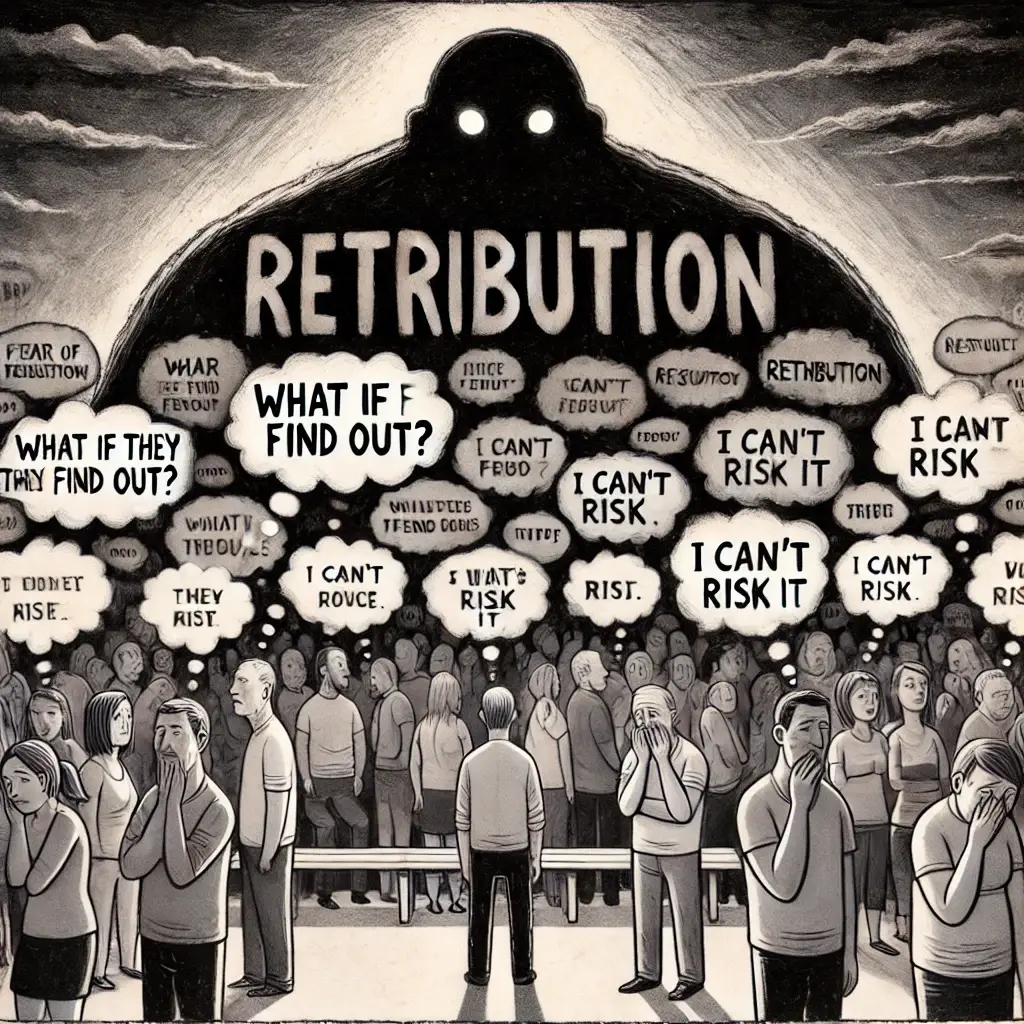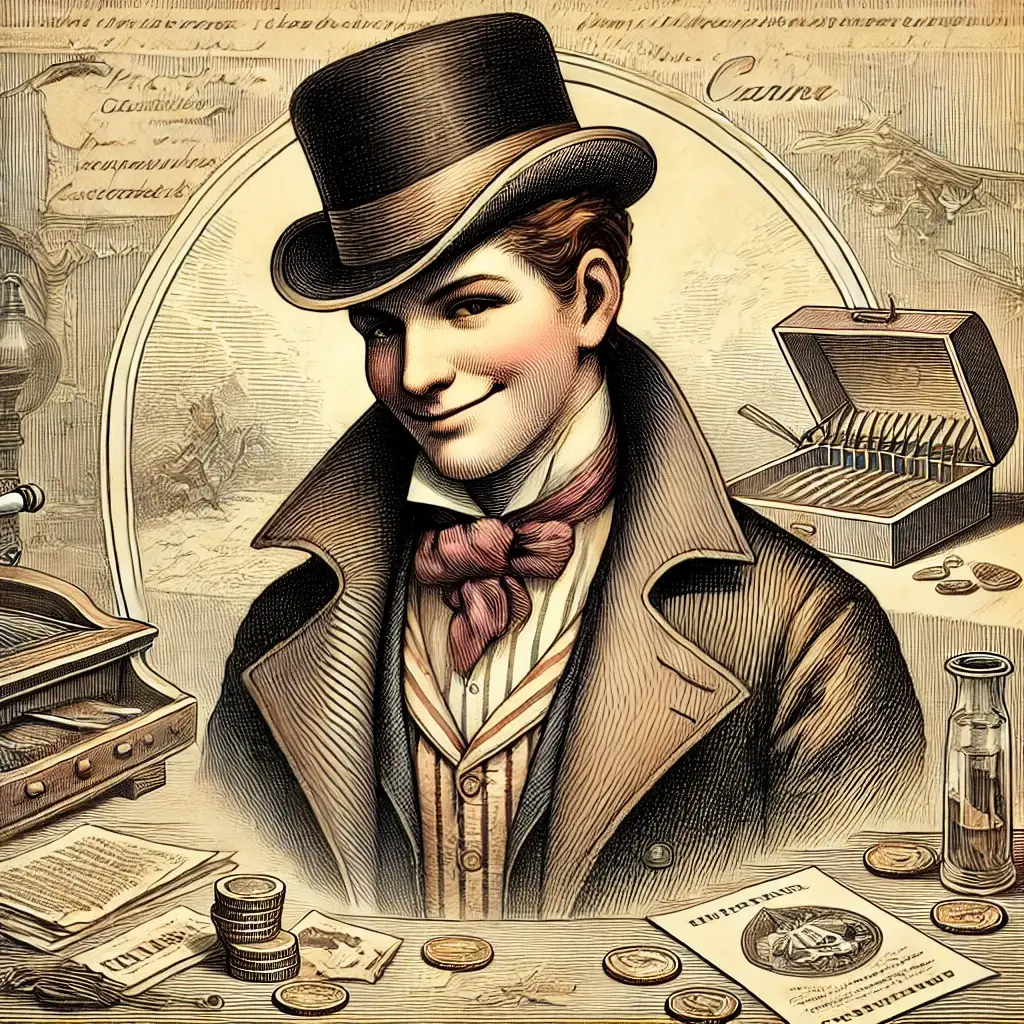
Fear of Retribution and Courageous Truth-Tellers
Fear of retribution is one of humanity’s most pervasive and paralyzing forces. Unlike other fears, it uniquely targets the ability to express truth, stifling voices and enabling wrongdoing to persist unchallenged. Fear leads to apathy and often leads to nothing matters anyway. This subtle force transforms potential acts of courage into silence, reinforcing systems of oppression and injustice. It is the silent oppressor, a shadow that looms over individuals and societies, suppressing dissent, stifling innovation, and enabling corruption to fester. Yet, history has shown that courage in the face of this fear often sparks transformative change. It is through the bravery of truth-tellers that societies evolve, injustices are confronted, and progress is achieved.
The Nature of Fear
Fear may spark outrage; however, misinformation coupled with fear leads to psychological manipulation and confusion, stifling what should be outrage and demand for justice. This manipulation exploits uncertainty, creating a paralyzing fog that prevents individuals from identifying and confronting the root causes of injustice.
Fear of retribution operates in subtle and overt ways, manifesting as a psychological barrier that prevents individuals from speaking out against wrongdoing. For example, a United States Senator or Member of the House of Representatives might hesitate to stand up for what is right and oppose what is wrong and unethical due to fear of losing their job or being ostracized by colleagues. This creates a culture of silence, where wrongdoing thrives unchecked. It is rooted in the anticipation of negative consequences—whether social ostracism, loss of livelihood, or even physical harm. The mind becomes a prison, where imagined repercussions grow larger than reality. This fear is amplified in environments of authoritarianism, rigid hierarchies, or social conformity, where speaking the truth is equated with rebellion.
Examples abound in history, from individuals in totalitarian regimes terrified of the secret police, such as those living under Stalin’s rule in Soviet Russia, to employees in corporate settings afraid of whistleblowing, like those who uncovered fraud in the Enron scandal. Fear becomes a tool for maintaining control, ensuring that systems of power remain unchallenged.
Courage in the Face of Fear
Despite its weight, fear of retribution has never been absolute. Throughout history, individuals and groups have risen to confront this shadow, motivated by a higher sense of duty, justice, or truth. Their stories inspire and illuminate the path forward, demonstrating that courage can shatter the illusion of invincibility surrounding oppressive systems.
Rosa Parks (Civil Rights Movement) Rosa Parks’ refusal to give up her seat on a segregated bus in 1955 was a profound act of defiance against institutionalized racism. At the time, the Jim Crow laws enforced strict racial segregation, creating an environment where African Americans faced systemic discrimination and daily humiliation. Parks’ quiet courage in the face of these oppressive laws became a catalyst for the Montgomery Bus Boycott, a turning point in the Civil Rights Movement. Despite the certainty of retribution—arrest, public scorn, and threats—her quiet courage became a catalyst for the Montgomery Bus Boycott. Her truth—equality and dignity for all—ignited a movement that changed the course of American history.
The Outcomes of Courage
When individuals or groups confront the fear of retribution with the truth, the outcomes often ripple far beyond their initial actions. Truth-tellers expose systemic flaws, inspire collective action, and lay the groundwork for reform. However, the path is rarely smooth, and the cost is often high.
Justice and Reform Many acts of truth-telling lead to systemic change. The abolition of segregation, the establishment of greater government transparency, and the implementation of whistleblower protections are all legacies of those who dared to speak out.
Cultural Shifts Courageous truth-tellers often reshape societal norms, forcing people to confront uncomfortable truths. Rosa Parks didn’t just challenge a law—she challenged a mindset. Such acts encourage introspection and cultural growth.
Empowerment of Others Courage is contagious. One act of defiance can inspire countless others to step forward, creating a domino effect that erodes the power of fear. Movements like #MeToo show how collective courage can amplify individual voices, creating an unstoppable wave of change.
The Enduring Lesson
Fear of retribution thrives on silence, but truth has a unique power: it persists, even in the face of adversity. Consider Rosa Parks, whose defiance of segregation laws ignited a movement that forever changed the course of American history. Similarly, whistleblowers like Frances Haugen have demonstrated how one voice can expose systemic abuses and spark global conversations. Let this remind us that every act of courage has the potential to inspire change, urging us to confront fear with action and uphold the values of truth and justice. Those who confront their fear and speak out remind us that change is not only possible but inevitable when individuals refuse to be complicit in wrongdoing.
The courageous who stand against retribution are not just outliers—they are harbingers of progress. Their sacrifices often come at great personal cost, but their legacy reshapes the world for the better. Their stories challenge each of us to ask: What truths are worth standing for? And what price are we willing to pay to uphold them?
Let us honor their courage not only with words but through our own actions, building a society where integrity and truth outweigh fear and division. The shadow of retribution fades when illuminated by the light of justice, and history proves that truth, though often delayed, ultimately prevails. Let’s face this together with integrity at u-pac.org.

